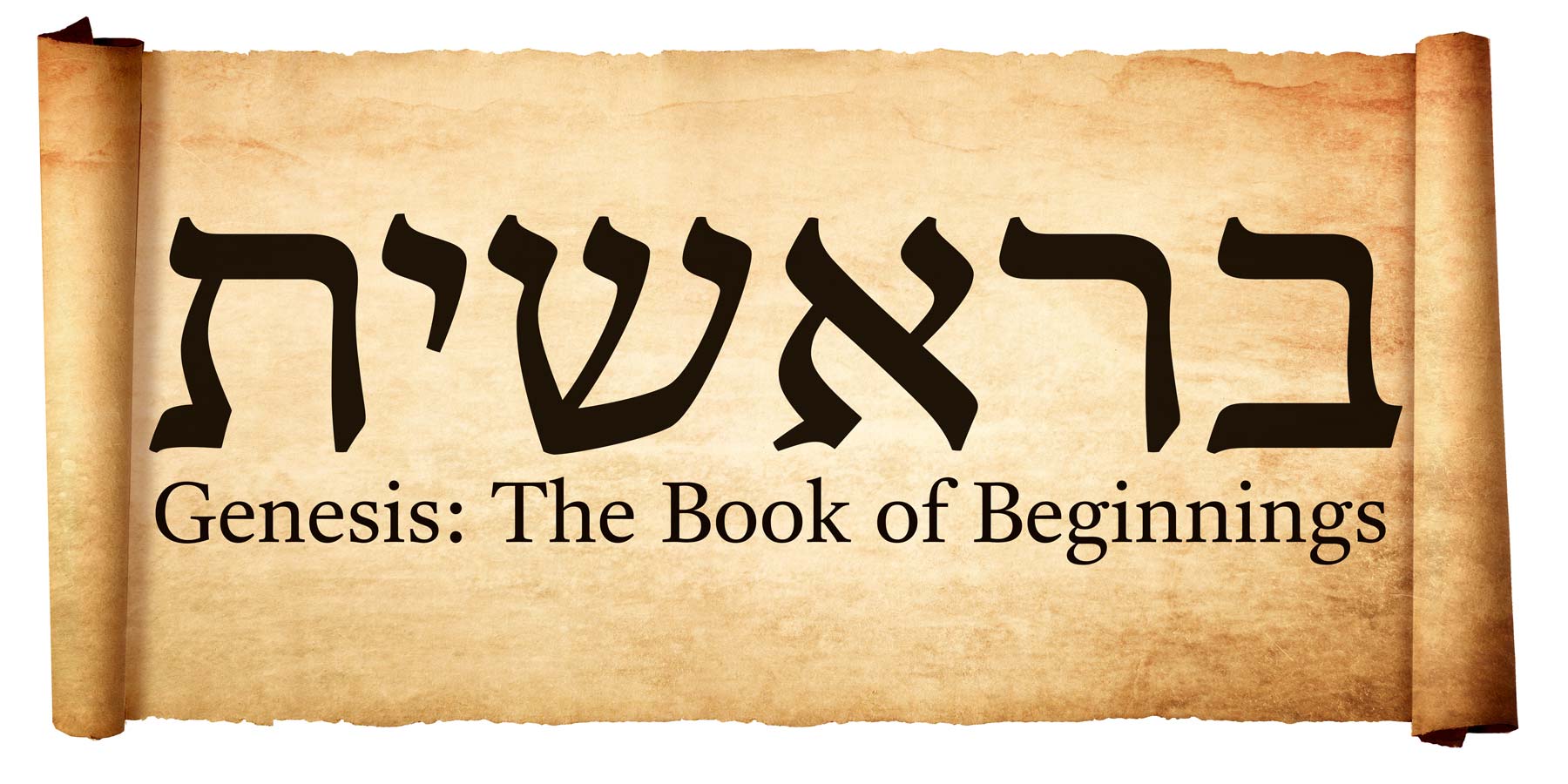Genesis Lesson Six | 5:1–6:8
Prayerfully read Genesis 5:1–6:8 at least two times and then read the following notes.
Context: Setting the Table
After a magnificent introduction (1:1–2:3), the first of the ten sections of Genesis, the “history of the heavens and the earth,” (2:4–4:26), relates God’s abundant provision for his image bearers (2:4–2:25), their initial rebellion (3:1–3:24), and the continued outworking of this rebellion in the life of Cain and his descendants. This second section, the “book of the generations of Adam,” tells the story of Seth and his descendants and lays the foundation for the account of Noah and the flood that follows.
Content: Reading the Text
(5:1–2) Recap: The Creation of Humanity
(5:1) This second of the ten “toledot” (generations) headings in Genesis takes a somewhat distinctive form. It is this particular heading that is picked up in Matthew 1:1—in Greek, the two sentences are almost identical. It seems clear that Matthew is intending to identify Jesus as the “second Adam,” a theme that is woven into his narrative at a number of points. Yet despite the similarity of the introductions, there is a striking difference in what follows. “The genealogy in Genesis 5 leads from Adam to Noah, for the genealogy of Adam is a genealogy of his descendants, while the genealogy of Jesus is a genealogy of his ancestors.”1 Jesus is the last Adam, the one toward whom all the many genealogies that fill the salvation history of the Old Testament pointed to all along.
(5:1–2a) “This…commends the sacred bond of marriage, and the inseparable union of the husband and the wife. For when Moses has mentioned only one, he immediately afterwards includes both under one name.”2 Marriage is a sacred covenantal union, a mystery (Ephesians 5:31–33) that is greater and deeper than we can fully comprehend. In striking contrast to this, our culture views marriage as a contract, a 50/50 proposition to be abandoned or renegotiated whenever one of the parties fails to fully keep up their end of the bargain. The only way to resist the pressure of our society is to constantly reform our views of marriage, conforming them ever more closely to the exalted vision of marriage set forth in the beginning (Genesis 1:26–28, 2:18–25).
(5:1–2b) In Hebrew, the personal name “Adam” and the generic noun “man/mankind” are identical (capital letters are not used in Hebrew).
(5:3–32) The Generations of Adam
(5:3) “What constituted ‘the image of God’ in the first two human beings was transmitted through procreation to all future generations.”3 Though this image was marred by mankind’s rebellion, our responsibility to represent God’s rule over his creation was passed on from generation to generation, a responsibility we can only begin to fulfill in union with Christ, the second Adam, the head of the new humanity (Ephesians 2:15).
(5:5) Though the promised punishment of death for rebellion was mercifully delayed, it was nevertheless sure. Union with the Second Adam is our only hope for deliverance from the death all humans experience as a result of their union with the first Adam (Romans 5:12–21).
(5:21–24) Despite the increasing wickedness of humanity (Genesis 6:1–8), Enoch, the seventh from Adam (Jude 14) walked with God by faith (Hebrews 11:5). In the face of the increasing depravity of our own society, this is the testimony on which our hearts must be set.
(5:25–27) Note Psalm 90:4, which the heading assigns to Moses himself. The longest lived of all humans did not live out a “watch in the night” in the sight of the LORD.
(5:32) The pattern of the genealogy in 5:3–32 closely matches that found in 11:10–26. Both are linear (a single direct line from one father to one particular son) genealogies that end by branching out to describe the birth of three named sons. There are other similarities as well.
(6:1–8) Preview: The Corruption of Humanity Before the Flood
(6:1) The multiplication of humanity was, in and of itself, a good thing—what God had commanded mankind to do (Genesis 1:27).
(6:2) The identity of the “sons of God” has been debated for thousands of years and will not be fully resolved here. There are three primary positions, each of which has been recently defended by conservative evangelical interpreters: “First, ‘the sons of the gods’ are nonhuman, godlike beings such as angels, demons, or spirits. Second, ‘the sons of the gods’ are superior men such as kings or other rulers. Third, ‘the sons of the gods’ are godly men, the descendants of Seth as opposed to the godless descendants of Cain.”4 (a.) Those who hold the (fallen) “angelic” view see it as significant that the only other places where the precise Hebrew expression found here is used (Job 1:6, 2:1) clearly refer to angelic beings of some sort. On this view Jesus’s words in Matthew 22:30 (see also Mark 12:18–27) refer specifically to the “angels of God in heaven,” and thus do not necessarily cover the scenario they see described here. (b.) Those who hold the “sons of God” to be human rulers of some kind draw a connection to Psalm 82 and other passages which use similar, though not identical, terminology to speak of human rulers. In this view the passage describes the replacement of God’s creational design for the marriage of one man and one woman with the oppressive gathering of large royal harems. (c.) Those who hold the “sons of God” to be the godly line of Seth point out that the chosen people of God are referred to as his “sons.” (Exodus 4:22; Deuteronomy 14:1 [the word translated as children is literally “sons” in Hebrew]; Deuteronomy 32:19, etc) On this view, the situation described is that of the once-godly descendants of Seth indiscriminately choosing marriage partners based on appearance alone. Despite the difficulty of determining the precise identity of the “sons of God,” (there are of course many, many more arguments for and against each of these positions) it seems most significant that all three of these viewpoints agree on the primary point of the text: the transgression of divinely established boundaries, particularly sexual ones, inevitably leads to destruction, not empowerment, a reality that the cultural experimenters of our own day will experience to their hurt.
(6:3) While the period of 120 years has been held by some to refer to a reduction in the span of individual human lives, it seems more likely to refer to the time between this announcement and the flood.
(6:6) “The repentance which is here ascribed to God…has reference to our understanding of him. For since we cannot comprehend him as he is, it is necessary that, for our sake, he should, in a certain sense, transform himself. That repentance cannot take place in God, easily appears from this single consideration, that nothing happens which is by him unexpected or unforeseen…because it could not otherwise be known how great is God’s hatred and detestation of sin, therefore the Spirit accommodates himself to our capacity.”5 When God is said to “repent” we should no more conclude that God changes his mind (see Numbers 23:19) than we should conclude that he has eyeballs because he is said to see.
(6:8) Though God’s grace was already in action in the garden of Eden (Genesis 3:15), this is the very first time that the word appears in the text of Scripture. Salvation has always been founded on God’s grace rather than human merit.
Credo: Believing the Truth
The “family history of Adam” functions as a transition section between the story of creation and rebellion and the story of humanity’s new beginning after the great flood. Though the line of Seth had gotten off to a good start (4:26), it soon became so involved in the increasing corruption of humanity that men like Enoch stood out as exceptions. Yet though God was deeply grieved by the destructive boundary crossing of his image bearers, he did not forget his promised plan of redemption. In the midst of a crooked and perverse generation, Noah nevertheless found grace, God’s unmerited favor, in the eyes of the LORD.
Conduct: Reshaping Our Walk
Discuss the meaning of the text and then walk through the following application questions as you discuss the difference this meaning ought to make in our lives today.
Could it truly be said of your daily life that you, like Enoch, “walk with God?” If not, why not?
While the crossing of boundaries often seems at the time to be exciting, even thrilling, the final result is always destructive. What are some of the boundaries, large and small, we are tempted to ignore in our own lives?
EXAMPLES: Traffic laws; Entertainment choices; Relationship standards, etc.
Endnotes
- Brown 1977, 67
- Calvin 1847, 228
- Sarna 1989, 42
- Wenham 1987, 139
- Calvin 1847, 248–249



